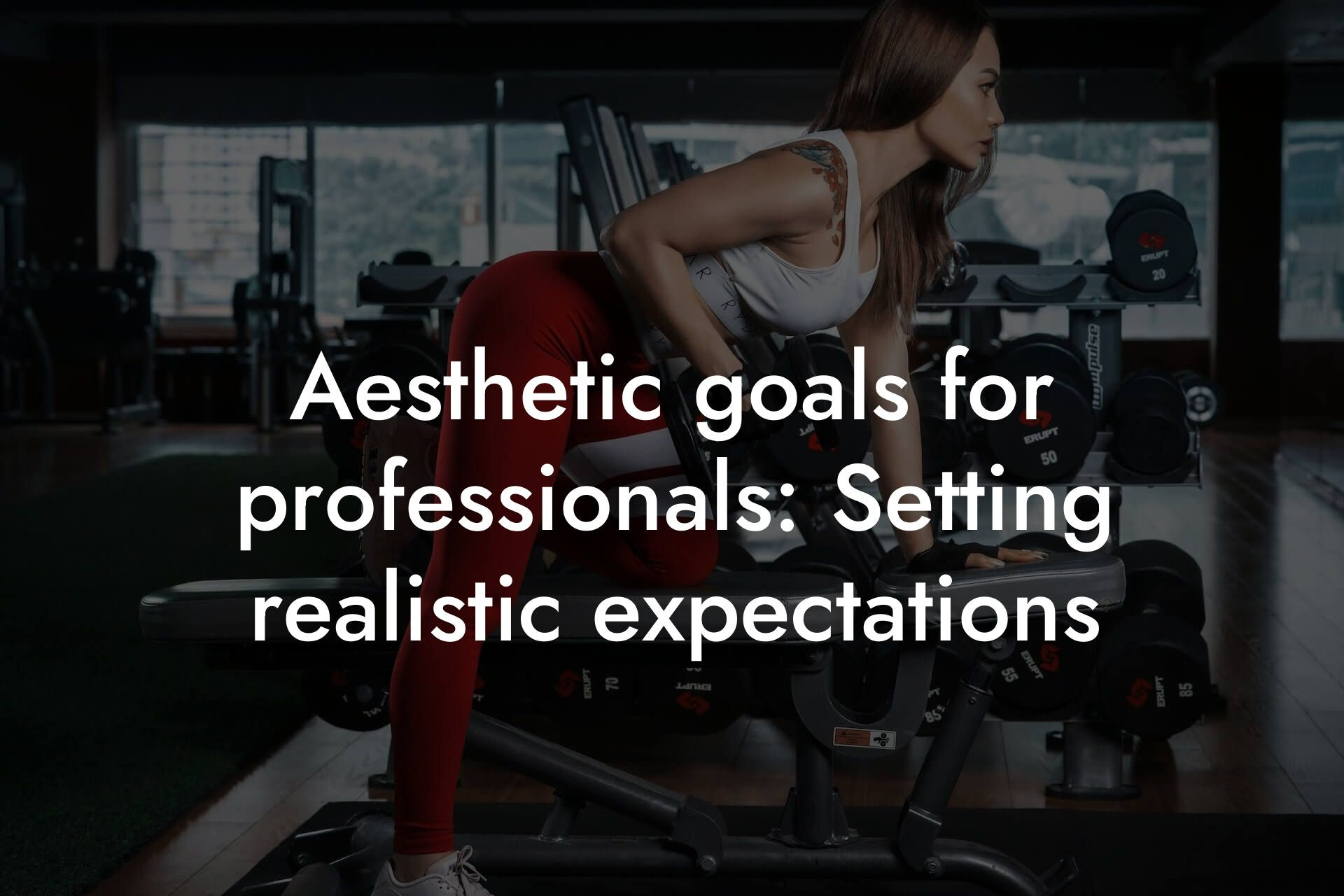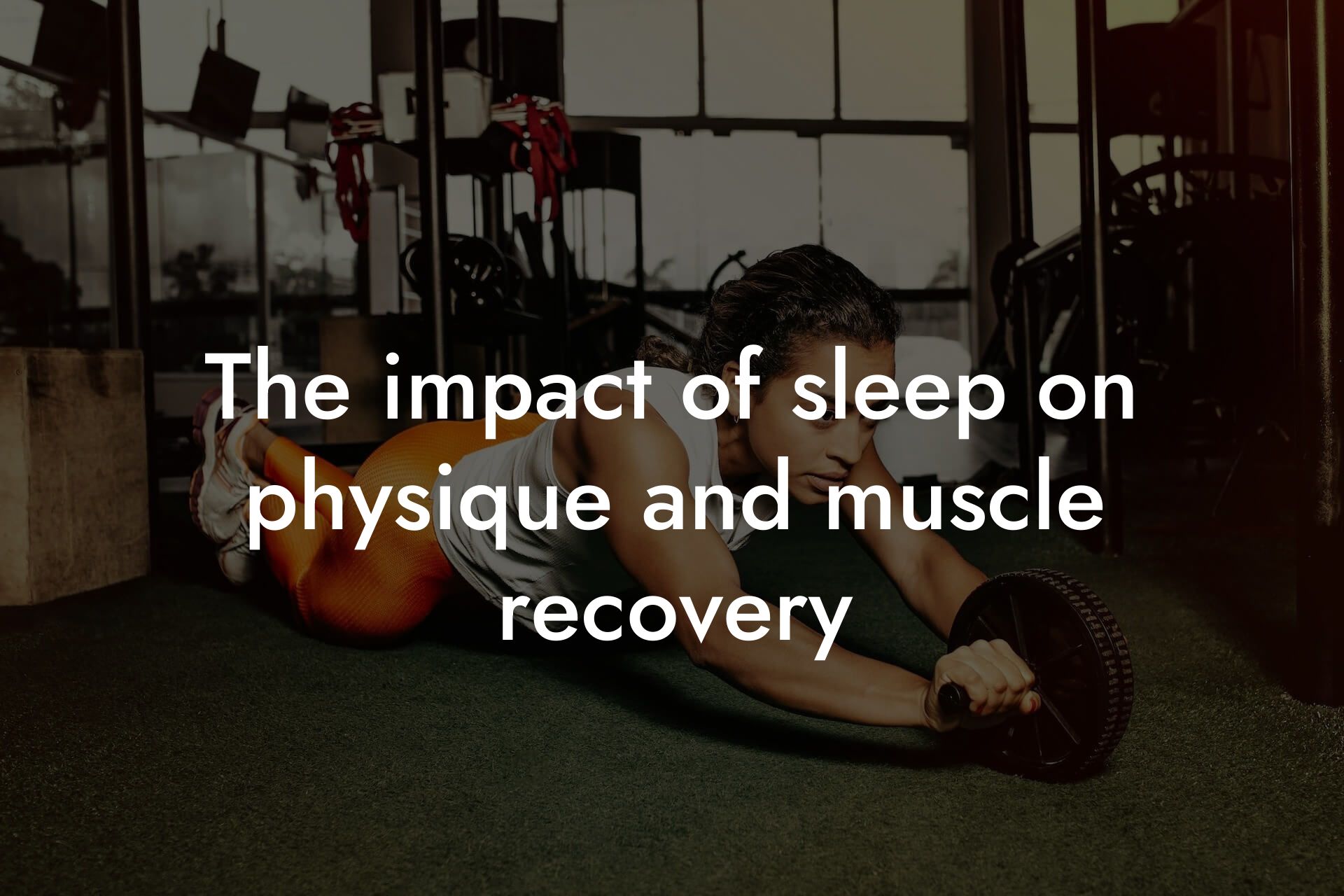As a high-earning professional, you understand the importance of presenting yourself in the best possible light. Your physical appearance can greatly impact your confidence, energy levels, and overall performance in the business world. However, achieving and maintaining a desirable physique can be a challenging and often frustrating journey. At Tano Performance Group, we've seen many individuals make common mistakes that hinder their progress and prevent them from reaching their full potential. In this article, we'll explore the most common mistakes in physique development and provide you with the knowledge and insights you need to avoid them.
Table of Contents
- Inconsistent Training and Nutrition
- Inadequate Progressive Overload
- Insufficient Rest and Recovery
- Poor Body Composition Analysis
- Inadequate Hydration and Electrolyte Balance
- Unrealistic Expectations and Lack of Patience
- Inadequate Mindset and Accountability
- Lack of Professional Guidance and Support
- Frequently Asked Questions
Inconsistent Training and Nutrition
One of the most common mistakes individuals make is inconsistency in their training and nutrition regimen. This can manifest in many ways, such as irregular workout schedules, inadequate nutrition planning, or frequent changes to their diet and exercise routine. Consistency is key when it comes to physique development. Your body needs a consistent stimulus to adapt and change, and inconsistent training and nutrition can lead to plateaus and frustration. To avoid this mistake, focus on creating a well-structured workout and nutrition plan that you can stick to in the long term.
Inadequate Progressive Overload
Progressive overload is the gradual increase in weight, resistance, or reps over time to challenge your muscles and stimulate growth. Without progressive overload, your muscles will not adapt and change, leading to stagnant progress. Many individuals make the mistake of doing the same workout routine with the same weights and reps for months on end, without challenging themselves to lift heavier or perform more reps. To avoid this mistake, focus on gradually increasing the intensity of your workouts over time, and incorporate different exercises and variations to keep your muscles guessing.
Insufficient Rest and Recovery
Rest and recovery are just as important as training and nutrition when it comes to physique development. Without adequate rest and recovery, your body will not be able to repair and rebuild muscle tissue, leading to fatigue, injury, and poor progress. Many individuals make the mistake of not prioritizing rest and recovery, instead focusing solely on training and nutrition. To avoid this mistake, make sure to get at least 7-8 hours of sleep per night, take rest days as needed, and incorporate recovery techniques such as foam rolling, stretching, and massage into your routine.
Poor Body Composition Analysis
Body composition analysis is crucial for understanding your physique development progress. Without accurate and regular body composition analysis, you may be relying on scales or mirror checks, which can be misleading and inaccurate. At Tano Performance Group, we use DEXA scanning technology to provide our clients with a comprehensive body composition analysis, including body fat percentage, lean mass, and bone density. To avoid this mistake, invest in regular body composition analysis to track your progress and make data-driven decisions.
Inadequate Hydration and Electrolyte Balance
Hydration and electrolyte balance are critical for optimal physique development. Without adequate hydration, your body will not be able to function at its best, leading to fatigue, decreased performance, and poor progress. Many individuals make the mistake of not prioritizing hydration, instead relying on sugary drinks or caffeine to get them through their workouts. To avoid this mistake, focus on drinking at least 8-10 glasses of water per day, and incorporate electrolyte-rich foods and supplements into your diet.
Unrealistic Expectations and Lack of Patience
Physique development takes time, effort, and patience. Many individuals make the mistake of having unrealistic expectations, expecting to achieve significant results in a short amount of time. This can lead to frustration, disappointment, and burnout. To avoid this mistake, focus on setting realistic goals and celebrating small victories along the way. Remember, physique development is a journey, not a destination.
Inadequate Mindset and Accountability
Your mindset and accountability play a critical role in your physique development journey. Without a positive and motivated mindset, you may struggle to stay on track and make progress. Many individuals make the mistake of not surrounding themselves with like-minded individuals, or not holding themselves accountable for their actions. To avoid this mistake, focus on building a support network of friends, family, or a personal trainer, and incorporate accountability measures such as tracking your progress and setting deadlines.
Lack of Professional Guidance and Support
Finally, many individuals make the mistake of not seeking professional guidance and support. Physique development can be complex and overwhelming, and without the right guidance, you may be wasting your time and effort. At Tano Performance Group, our team of experts is dedicated to providing you with the guidance and support you need to achieve your physique development goals. To avoid this mistake, consider working with a personal trainer or coach who can provide you with customized guidance and support.
By avoiding these common mistakes, you can ensure that you're on the right track to achieving your physique development goals. Remember, physique development is a journey that requires patience, dedication, and the right guidance. At Tano Performance Group, we're committed to helping you achieve your goals and take your business to the next level.
Frequently Asked Questions
What are the most common mistakes people make when trying to develop their physique?
One of the most common mistakes is having unrealistic expectations and trying to achieve rapid results. This can lead to frustration, burnout, and a higher risk of injury. Another mistake is not having a well-structured workout plan and nutrition strategy, which can hinder progress and make it difficult to achieve desired results.
How do I know if I'm making progress in my physique development?
There are several ways to track progress, including taking progress photos, measurements, and body fat percentage readings. It's also important to monitor your workout performance, such as increases in weight lifted or improvements in endurance. Additionally, pay attention to how you feel, as increased energy and confidence can be indicators of progress.
What is the importance of having a balanced workout routine?
A balanced workout routine is crucial for overall physique development. It ensures that all major muscle groups are being targeted, which helps to prevent imbalances and injuries. A balanced routine also promotes overall fitness and athleticism, rather than just focusing on aesthetics.
How often should I be working out to see results?
The frequency of workouts depends on individual goals and current fitness level. However, a general rule of thumb is to aim for 3-4 weightlifting sessions per week, with at least one day of rest in between. Cardiovascular exercise can be done more frequently, but it's important to listen to your body and not overdo it.
What is the role of nutrition in physique development?
Nutrition plays a critical role in physique development, as it provides the necessary fuel for muscle growth and recovery. A well-structured nutrition plan should include a balance of protein, carbohydrates, and healthy fats, as well as adequate hydration. Aim to eat a variety of whole, unprocessed foods, and avoid excessive sugar and saturated fats.
How do I know if I'm eating enough protein?
A general rule of thumb is to consume at least 1 gram of protein per pound of body weight daily. However, this can vary depending on individual goals and activity level. For example, athletes or those trying to build muscle may need more protein. It's also important to distribute protein intake throughout the day, rather than consuming it all in one or two meals.
What are some common mistakes people make with their nutrition plan?
One common mistake is not eating enough protein, as mentioned earlier. Another mistake is not staying hydrated, which can lead to fatigue, decreased performance, and poor recovery. Additionally, many people underestimate their calorie needs, leading to inadequate fueling for their workouts and daily activities.
How do I stay motivated and consistent with my workout routine?
Staying motivated and consistent requires setting realistic goals, finding a workout buddy or accountability partner, and tracking progress. It's also important to mix up your routine and try new exercises or workouts to avoid boredom and prevent plateaus. Rewarding yourself for milestones achieved can also be a great motivator.
What is the importance of rest and recovery in physique development?
Rest and recovery are crucial for muscle growth and repair. When you're not giving your body adequate time to recover, you're not allowing your muscles to rebuild and adapt, which can hinder progress and increase the risk of injury. Aim for 7-9 hours of sleep per night and take rest days as needed.
How do I know if I'm overtraining?
Signs of overtraining include fatigue, decreased performance, and increased risk of injury. You may also experience mood changes, such as irritability or depression. If you're feeling exhausted, sore, or demotivated, it may be a sign that you need to take a step back and reassess your workout routine.
What is the role of supplements in physique development?
Supplements can be a useful addition to a well-structured workout and nutrition plan, but they should not be relied upon as the primary means of achieving results. Protein powder, creatine, and branched-chain amino acids (BCAAs) are popular supplements that can help support muscle growth and recovery. However, always consult with a healthcare professional before adding new supplements to your routine.
How do I choose the right workout program for my goals?
When choosing a workout program, consider your goals, fitness level, and available time. Look for a program that is well-structured, progressive, and tailored to your needs. It's also important to choose a program that you enjoy, as this will increase adherence and motivation.
What is the importance of consistency in physique development?
Consistency is key in physique development, as it allows for progressive overload and adaptation. Without consistency, it's difficult to make progress and achieve desired results. Aim to workout and eat consistently, even if it's not perfect, and make adjustments as needed.
How do I deal with setbacks and plateaus in my physique development?
Setbacks and plateaus are a normal part of the physique development journey. When faced with a setback, take a step back, reassess your routine, and make adjustments as needed. It may be necessary to change your workout routine, nutrition plan, or recovery strategy. Don't get discouraged, and remember that progress is not always linear.
What is the role of mental preparation in physique development?
Mental preparation is critical in physique development, as it helps to build confidence, motivation, and resilience. Visualization techniques, positive self-talk, and mindfulness practices can all be useful in preparing mentally for workouts and overcoming challenges.
How do I stay accountable and motivated during my physique development journey?
Staying accountable and motivated requires setting realistic goals, tracking progress, and finding a support system. This can include working with a personal trainer, joining a fitness community, or finding a workout buddy. Regularly rewarding yourself for milestones achieved can also be a great motivator.
What are some common mistakes people make when trying to lose body fat?
One common mistake is trying to lose weight too quickly, which can lead to muscle loss and a slower metabolism. Another mistake is not eating enough protein, which can lead to muscle loss and decreased satiety. Additionally, many people underestimate their calorie needs, leading to inadequate fueling for their workouts and daily activities.
How do I know if I'm losing muscle mass?
Signs of muscle loss include decreased strength, muscle soreness, and a decrease in muscle mass. You may also notice a decrease in performance, such as being unable to lift the same weight or complete the same workout. If you're concerned about muscle loss, consult with a healthcare professional or registered dietitian for guidance.
What is the importance of bone density in physique development?
Bone density is critical in physique development, as it helps to prevent injuries and maintain overall health. Resistance training and adequate nutrition, including calcium and vitamin D, can help to support bone density.
How do I incorporate cardio into my workout routine?
Cardio can be incorporated into your workout routine through activities such as running, cycling, or swimming. Aim for 15-30 minutes of moderate-intensity cardio per session, 2-3 times per week. It's also important to listen to your body and not overdo it, as excessive cardio can lead to burnout and decreased performance.
What is the role of stretching and foam rolling in physique development?
Stretching and foam rolling are important for maintaining flexibility, reducing muscle soreness, and improving recovery. Aim to stretch after workouts and incorporate foam rolling 2-3 times per week, focusing on major muscle groups such as the legs, back, and chest.
How do I know if I need to adjust my workout routine?
If you're not seeing progress, feeling bored or unmotivated, or experiencing plateaus, it may be time to adjust your workout routine. Additionally, if you're experiencing injuries or muscle imbalances, it may be necessary to reassess your routine and make changes to prevent further injury.
What is the importance of patience in physique development?
Patience is critical in physique development, as it allows for progressive overload and adaptation. Without patience, it's easy to get discouraged and give up. Remember that progress takes time, and it's important to focus on the journey, rather than the destination.
How do I stay informed and up-to-date with the latest research and trends in physique development?
Stay informed by following reputable sources, such as scientific journals and fitness professionals, on social media. Attend workshops and seminars, and read books and articles on the topic. It's also important to consult with a healthcare professional or registered dietitian for personalized guidance.
Here are some related articles you might love...
- Aesthetic goals for professionals: Setting realistic expectations
- The impact of sleep on physique and muscle recovery
- Top workouts to enhance your physique
- Building a professional physique: A guide for busy professionals
- The role of genetics in physique development
- Muscle toning vs building: What’s the difference?
- How your physique impacts your confidence and career
- Best supplements for improving physique
- How to maintain a lean physique year-round
Zak Faulkner
Zak Faulkner is a leading authority in the realm of physical health and body composition analysis, with over 15 years of experience helping professionals optimise their fitness and well-being. As one the experts behind Tano Performance Group, Zak has dedicated his career to providing in-depth, science-backed insights that empower clients to elevate their physical performance and overall health.
With extensive knowledge of DEXA technology, Zak specializes in delivering comprehensive body assessments that offer precise data on body fat, muscle mass, bone density, and overall physique. His expertise enables individuals to make informed decisions and achieve their fitness goals with accuracy and confidence. Zak’s approach is rooted in a deep understanding of human physiology, combined with a passion for helping clients unlock their full potential through personalised strategies.
Over the years, Zak has earned a reputation for his commitment to excellence, precision, and client-focused service. His guidance is trusted by top professionals who demand the best when it comes to their health. Whether advising on fitness programs, nutritional strategies, or long-term wellness plans, Zak Faulkner’s insights are a valuable resource for anyone serious about taking their health and fitness to the next level.
At Tano Performance Group, Zak continues to lead our Content Team revolutionising how professionals approach their physical health, offering unparalleled expertise that drives real results.




